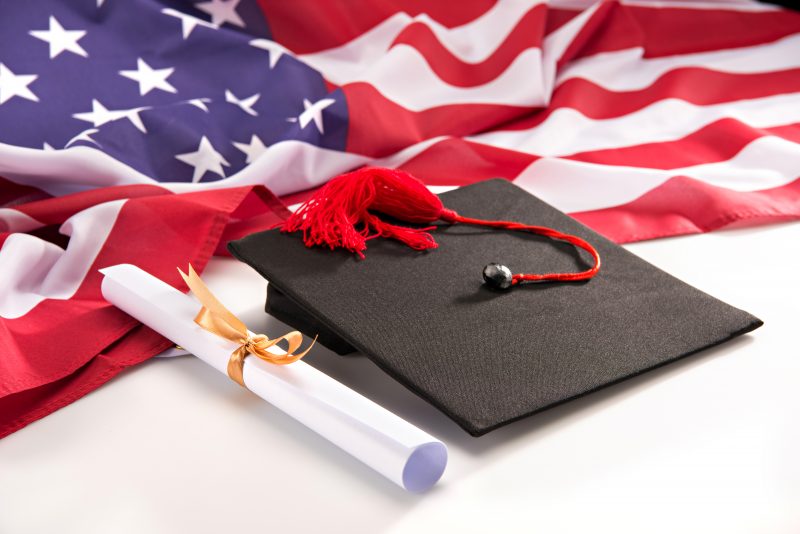
For the first two years of their undergraduate course US students are free to explore everything from art history to psychology.
Compared to UK universities US universities offer a more flexible framework, requiring self-study and allowing students to change direction and follow their interests.
For example, you might start off with economics, switch to psychology before eventually majoring in international relations. Any route is possible, as long as you have enough drive and ambition to hold yourself accountable and follow through on your commitments.
BL TIP: Take advantage of the less competitive early admissions period in October, but be aware of the commitment – the offer may be legally binding.
Test scores will get you through the admissions door
All US universities ask applicants to sit standardised ACT/SAT tests which focus on maths, science, and English. These test scores matter just as much as your A-Level or IB results, a compelling personal statement and extracurricular activities. Start preparing three years prior to taking the tests, monitor the score requirements at your preferred universities and do as many practice tests as possible to familiarise yourself with the format. Universities may try to convince you otherwise, but even the most impressive extracurricular activities cannot balance out a bad ACT/SAT score.
BL TIP: Show your commitment by taking the optional SAT subject-specific exams and choose your strongest high-school subject to up your score.
Personality will keep you in the classroom
Only 5-9% of applicants are accepted into Ivy League universities each year. To stand out from other candidates who are equally well-qualified academically you need to demonstrate exceptional leadership skills and your unique personality. To do so, you don’t need to volunteer overseas, unless you are truly interested in this line of work. In fact, initiating your own projects and contributing to your community on a smaller scale is even more convincing: leading a football or chess team towards championship success is just as persuasive as running a chemistry project at the high-school science lab or organising an afternoon club for underprivileged children. Even caring for a family member is a leadership activity, as it demonstrates that you have compassion and empathy. As long as the projects genuinely tie in with your sense of purpose the admissions officers will consider them favourably.
BL TIP: Your personal statement is an essential part of the US admissions process. Contrary to UK applications, each US university requires a tailored statement to show how and why you will fit into their community.
Students should not rely on university rankings alone. Instead, choose a university according to your academic and professional goals: MIT is any tech geek’s dream, Harvard is the perfect choice for aspiring lawyers and Columbia is known for its outstanding medicine programme. Even though you won’t specialise until your Master’s you might be required to take specific undergraduate courses to be eligible for certain post-graduate programmes. Students are, therefore, advised to explore their interests from Senior School onwards in order to decide on their academic and professional goals: seek advice from a career counselor or mentor, engage in academic and extracurricular activities and take advantage of university open days to help you make the right choice.
Learn how Bruton Lloyd might help you with your personal statement and test preparation



